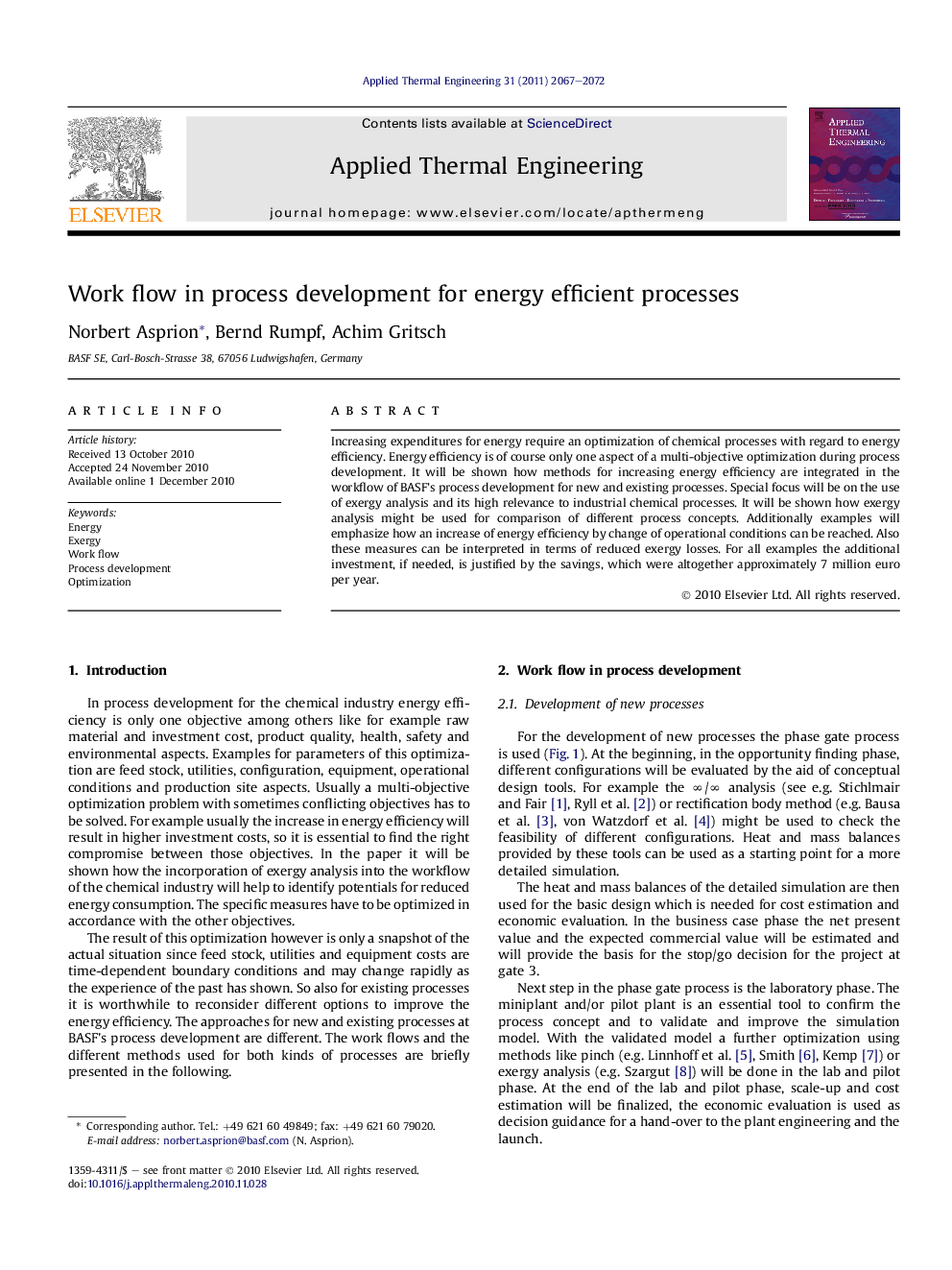| Article ID | Journal | Published Year | Pages | File Type |
|---|---|---|---|---|
| 647860 | Applied Thermal Engineering | 2011 | 6 Pages |
Increasing expenditures for energy require an optimization of chemical processes with regard to energy efficiency. Energy efficiency is of course only one aspect of a multi-objective optimization during process development. It will be shown how methods for increasing energy efficiency are integrated in the workflow of BASF’s process development for new and existing processes. Special focus will be on the use of exergy analysis and its high relevance to industrial chemical processes. It will be shown how exergy analysis might be used for comparison of different process concepts. Additionally examples will emphasize how an increase of energy efficiency by change of operational conditions can be reached. Also these measures can be interpreted in terms of reduced exergy losses. For all examples the additional investment, if needed, is justified by the savings, which were altogether approximately 7 million euro per year.
Graphical abstractFigure optionsDownload full-size imageDownload as PowerPoint slideHighlights► Work flow for development of energy efficient processes for new and existing plants in the chemical industry is presented. ► Exergy analysis has been used to identify favorable process concepts. ► Examples with annual savings of about 7 million euro emphasize the use of the method.
